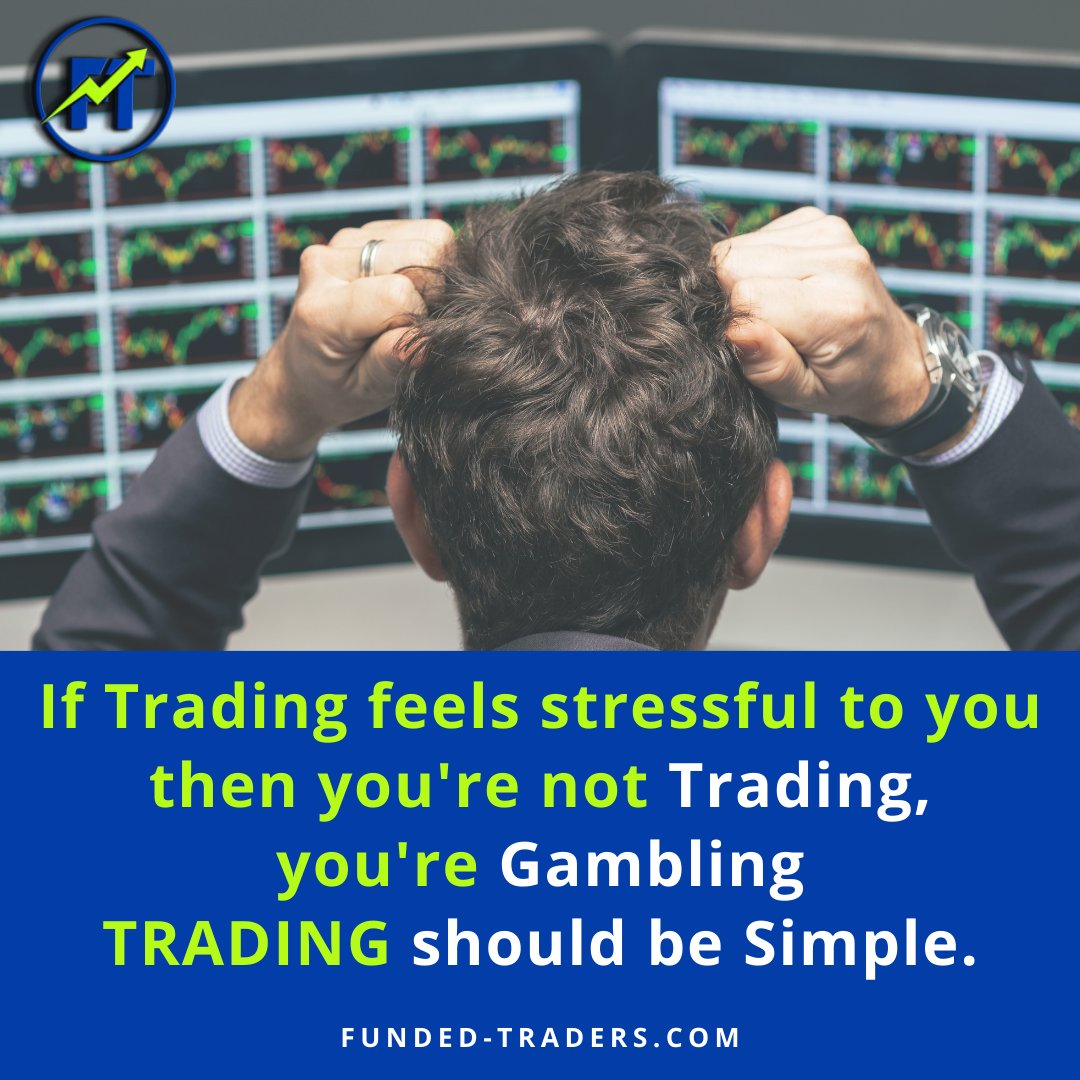The Emotional Landscape of Trading
Imagine this: you’re sitting at your trading desk, heart pounding, palms sweaty. The market is volatile, and your latest trade is teetering on the edge of profitability. Sound familiar? Trading, by its very nature, can be an emotional rollercoaster. The highs of winning trades and the lows of losses can take a significant toll on your mental well-being. But what if there was a way to navigate this landscape with more calm and less stress? Enter the world of stress-free trading, where calculated decisions and strategic planning take center stage.
The Emotional Rollercoaster
Trading can evoke a whirlwind of emotions. The thrill of a winning trade can be exhilarating, but the despair of a losing one can be crushing. This emotional volatility is often what makes trading stressful. The key to managing this stress is to recognize when your trading feels more like gambling than a calculated strategy. If you find yourself making impulsive decisions based on fear or greed, it’s time to reassess your approach. Emotions are a natural part of trading, but they don’t have to control your decisions. By recognizing and managing your emotions, you can make more rational decisions. For example, if you find yourself feeling anxious about a trade, take a step back and reassess your strategy. If you’re feeling greedy, remind yourself of your long-term goals and avoid taking unnecessary risks.
The Power of Analysis
Analysis is the cornerstone of stress-free trading. By relying on data and trends rather than emotions, you can make more informed decisions. This doesn’t mean you need to be a data scientist; it simply means you should use available tools and resources to guide your trading. For example, technical analysis can help you identify trends and patterns, while fundamental analysis can provide insights into the underlying value of an asset. By focusing on analysis, you can reduce the emotional rollercoaster and make more calculated decisions.
Keeping It Simple
One of the biggest mistakes traders make is overcomplicating their strategies. The more complex your strategy, the more room there is for error and stress. Keeping it simple allows you to focus on what’s important and makes it easier to stick to your plan. This doesn’t mean you should ignore important factors, but rather, you should prioritize them and avoid getting bogged down in unnecessary details. For instance, instead of trying to analyze every possible indicator, focus on a few key metrics that have proven reliable for you. Simplicity breeds clarity, and clarity breeds confidence.
Sticking to Your Strategy
Consistency is key in trading. Once you have a strategy that works for you, stick to it. This doesn’t mean you can’t adjust your strategy over time, but it does mean you should avoid making impulsive changes based on short-term market fluctuations. By sticking to your strategy, you can reduce stress and increase your chances of long-term success. Think of it like a well-rehearsed play. The actors know their lines and cues, and the performance flows smoothly. Similarly, when you have a well-defined strategy, your trading becomes more predictable and less stressful.
The Role of Emotions
Emotions play a significant role in trading, but they don’t have to control your decisions. By recognizing and managing your emotions, you can make more rational decisions. For example, if you find yourself feeling anxious about a trade, take a step back and reassess your strategy. If you’re feeling greedy, remind yourself of your long-term goals and avoid taking unnecessary risks. Emotional awareness is a powerful tool in the trader’s arsenal. It allows you to step back from the heat of the moment and make decisions based on logic rather than impulse.
The Importance of Education
Education is another crucial aspect of stress-free trading. The more you know about the market and the assets you’re trading, the more confident you’ll feel in your decisions. This doesn’t mean you need to become an expert overnight, but rather, you should continuously seek to expand your knowledge and skills. Education empowers you to make informed decisions and reduces the uncertainty that often leads to stress. Whether it’s through online courses, books, or mentorship, investing in your education is an investment in your trading success.
The Benefits of a Community
Trading can be a lonely activity, but it doesn’t have to be. Joining a community of like-minded traders can provide support, advice, and a sense of camaraderie. This can be especially helpful during stressful times, as you can share your experiences and learn from others. A community can offer a wealth of knowledge and a support system that can make the trading journey less isolating. Whether it’s through online forums, social media groups, or local meetups, finding your trading tribe can make a world of difference.
The Future of Trading
As technology continues to evolve, so too will the world of trading. From automated trading platforms to advanced analytics tools, the future of trading promises to be more accessible and less stressful than ever before. By staying up-to-date with the latest trends and technologies, you can ensure you’re always one step ahead. Imagine a world where algorithms do the heavy lifting, and you focus on strategy and analysis. This future is not far off, and embracing it can make trading a more enjoyable and less stressful endeavor.
Conclusion: Embrace the Calculated Approach
In conclusion, trading doesn’t have to be stressful. By adopting a calculated approach, keeping it simple, sticking to your strategy, and letting analysis guide your decisions, you can transform trading into a more manageable and enjoyable activity. Remember, the goal is not to eliminate stress entirely, but rather, to manage it in a way that allows you to make more informed and rational decisions. So, embrace the calculated approach and watch as your trading journey becomes a more rewarding experience. The path to stress-free trading is within reach, and with the right mindset and tools, you can navigate the market with confidence and calm.
—
Sources:

